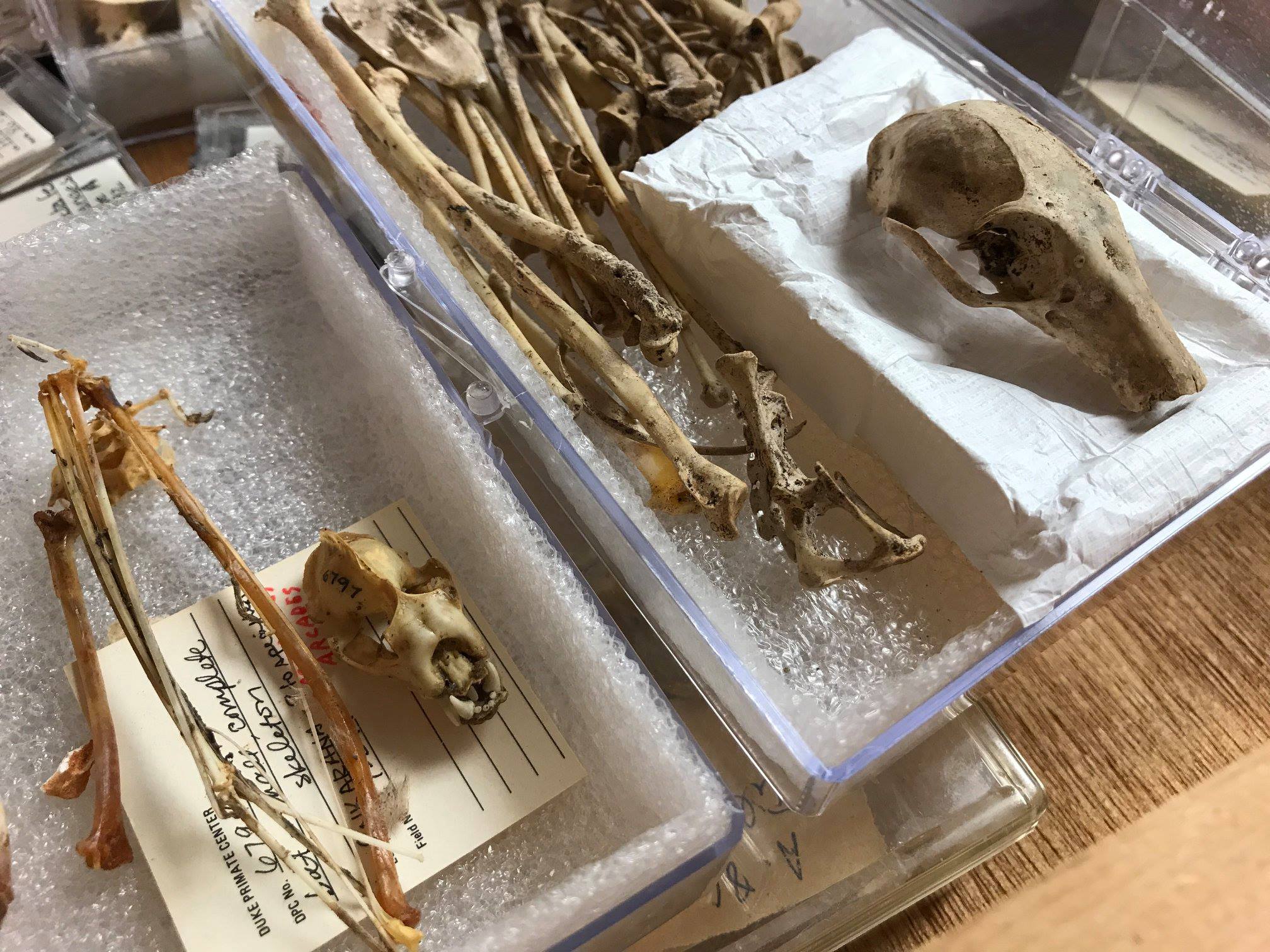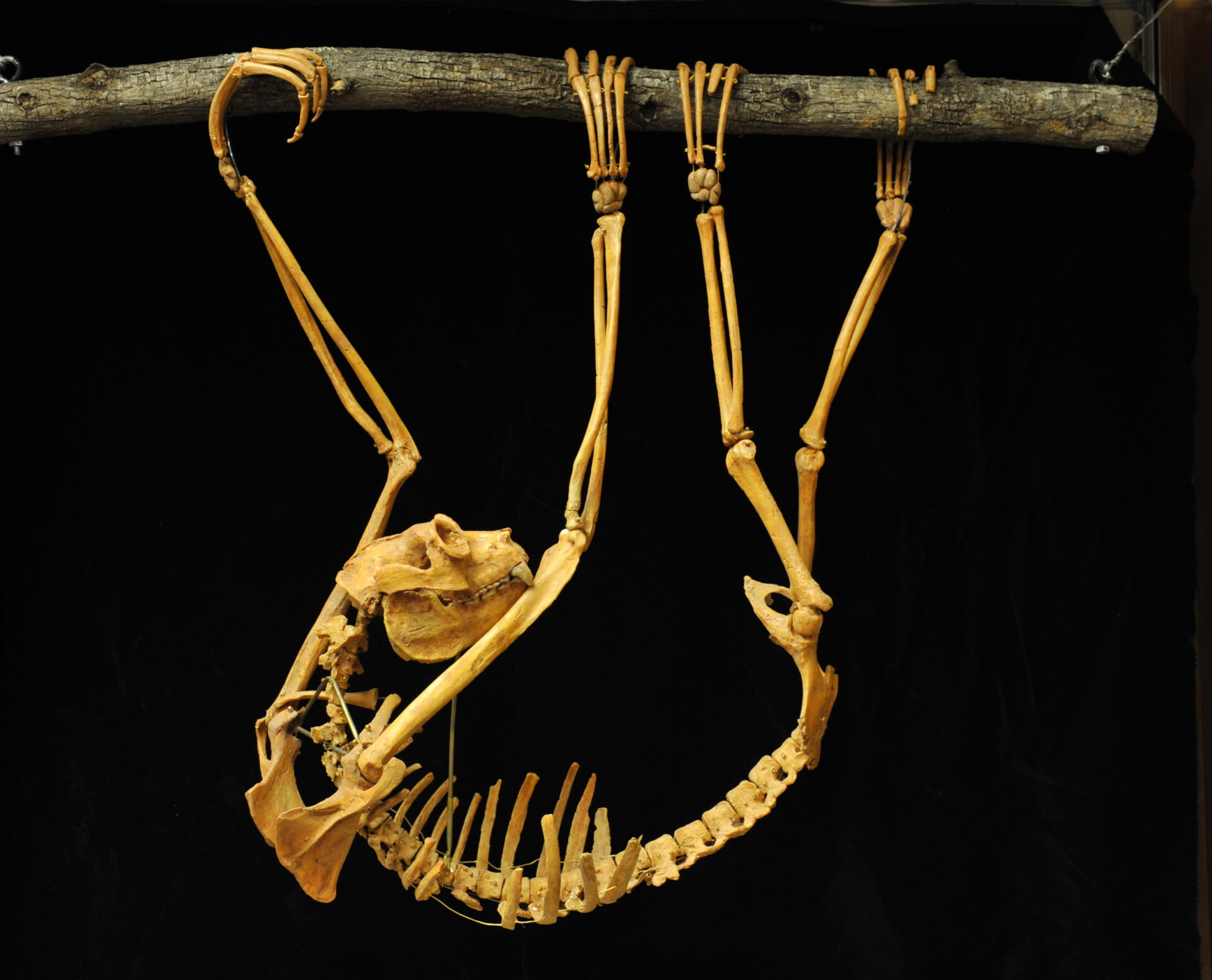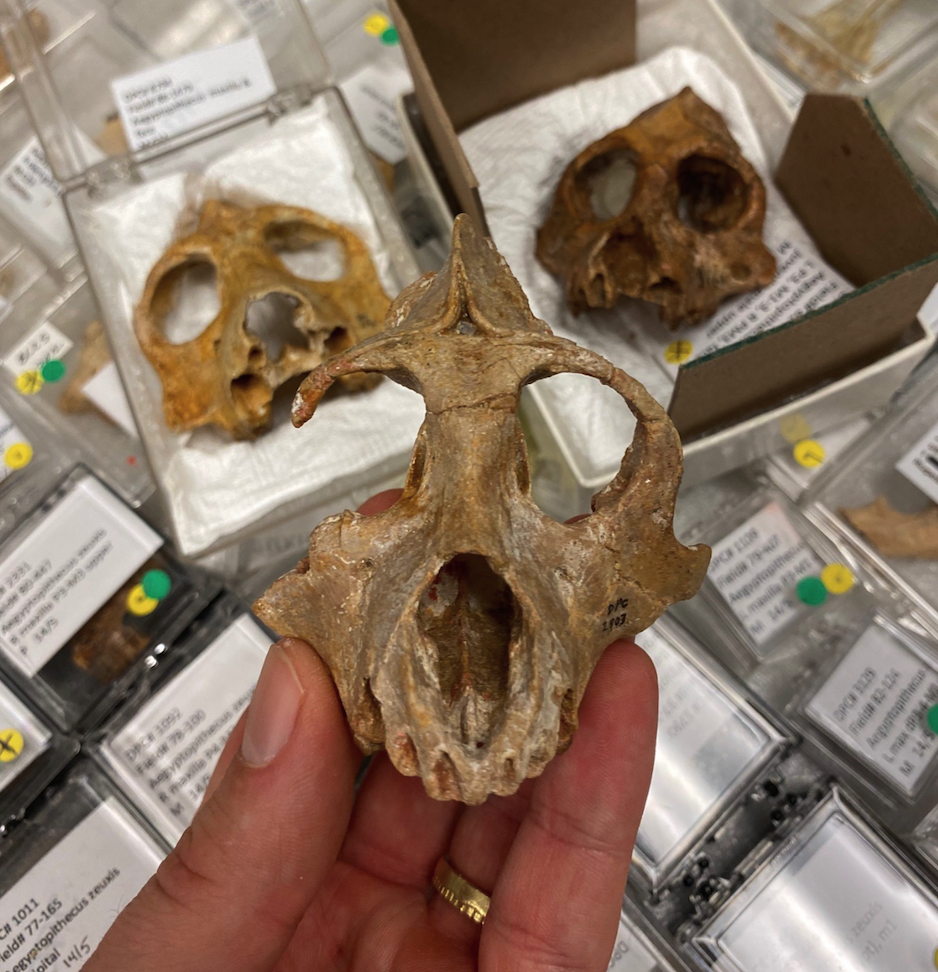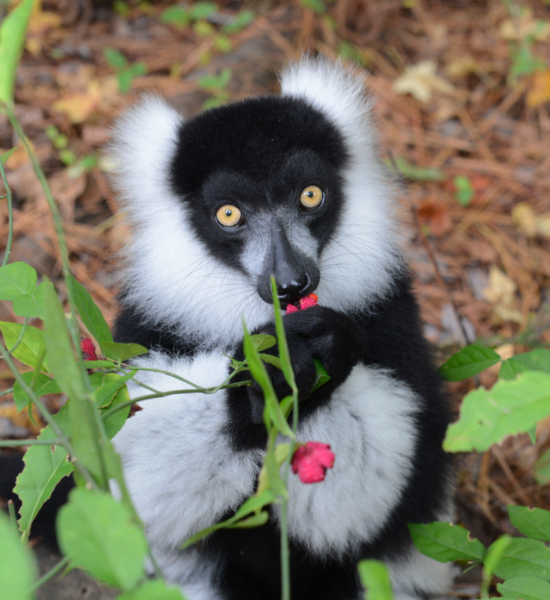Our favorite fall photos, past and present
By Marina Blanco, Ph.D., DLC-SAVA Post-Doctoral Project Coordinator The “Lemur Day Festival” was celebrated on Halloween in the SAVA region of Madagascar this year! DLC-SAVA Conservation, along with NGOs like World Wildlife Fund (WWF), Lemur Conservation Foundation (LCF), Wildlife Conservation Society (WCS), and others assisted with the organization and celebrated the day with school students in […]
Join our Conservation Coordinator, Charlie Welch, for the trip of a lifetime this summer! You do NOT need to be a Duke alumnus/a to join us for this amazing tour of Madagascar! Lots more info available here, including a gorgeous multi-page brochure: https://lemur.duke.edu/protect/madagascar-ecotour/. We hope you’ll join us!

By Matt Borths, Curator of the Duke Lemur Center’s Division of Fossil Primates. Happy Halloween from the DLC’s Division of Fossil Primates! These bats flew over the heads of extinct giant lemurs and elephant birds! Skulls, skeletons, monsters, and the bringing of things back from the dead? Every day is Halloween for a paleontologist!
Six-year-old male ring-tailed lemur Jones may look like he is a lemur somewhat lacking in arms as he sniffs a sapling in Natural Habitat Enclosure #9, but rest assured, he is a well-armed male in the prime of life! His odd posture is due to the fact that, in typical male ring-tail marking behavior, he […]

“One of my favorite lemurs is this extinct giant lemur called Paleopropithecus. It’s a relative of sifakas, but it’s built in a completely different way. These animals are nicknamed sloth lemurs because they have these long limbs and claws that let them move under tree branches in Madagascar. But my favorite feature is their round, […]

By Matt Borths, Curator of the Duke Lemur Center’s Division of Fossil Primates. This Fossil Friday, meet a primate in your own family tree: Aegyptopithecus, whose name means “The Egyptian Monkey.” This 30-million-year-old face would make a great template for a jack o’ lantern! Aegyptopithecus was named by Elwyn Simons — the father of modern primate paleontology and […]

“Some plants in Madagascar may have evolved fruit colors so that they can be seen by lemurs that are red-green colorblind.” Super interesting article — and a Duke University researcher is featured too! Plants Can’t Talk. But Some Fruits Say ‘Eat Me’ to Animals. By JoAnna Klein. Originally published in the New York Times on October 9, 2018. Read […]